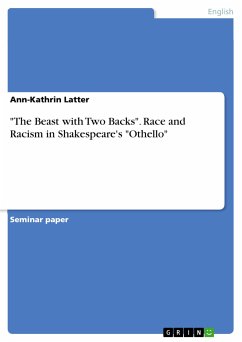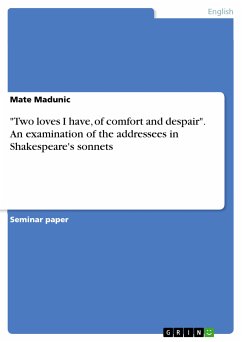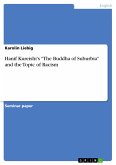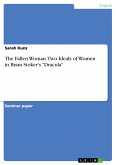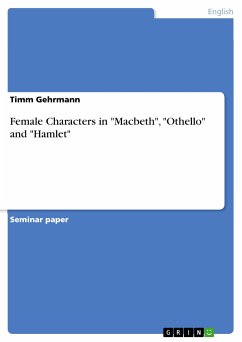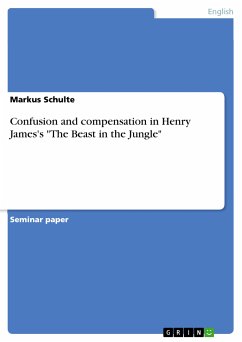Seminar paper from the year 2015 in the subject English Language and Literature Studies - Literature, grade: 2,0, Johannes Gutenberg University Mainz, language: English, abstract: This term paper seeks to dislocate traces of racism within the characters of Iago, Othello, and Desdemona in Shakespeare's "Othello". By scrutinizing both overt and covert forms of xenophobia, it tries to explain how and why the play came to its tragic ending. In 1994, Nelson Mandela wrote in his autobiography that "no one is born hating another person because of the color of his skin, or his background, or his religion" and that, consequently, "people must learn to hate". By itself, this is a simple statement but it is also egregious in the way it makes us understand. There is nothing it could not explain, no dispute it could not illuminate. And even though Mr. Mandela had originally formulated his statement with regard to Apartheid, it fits extraordinarily well to racism in Shakespeare’s "Othello". Judging from Michael Neill’s investigations into the subject of notions of human difference in early modern societies, 16th century Venice had a considerably open attitude towards foreigners of any kind, with a great deal of cultural exchange taking place between people of every colour and every religion. By the beginning of the 17th century, however, this started to change: as the number of encounters with foreign cultures increased, "color emerg[ed] as the most important criterion for defining otherness" (Neill). As Mandela would have put it, Venetians started to learn hating others in behalf of their skin colour. And precisely this kind of development is illustrated in Othello: the Moor, who is actually a prime example for successful integration, has to endure an increasing degree of enmities and discriminations as racist sentiments begin to emerge in Venetian society — sentiments even Othello himself cannot resist.

